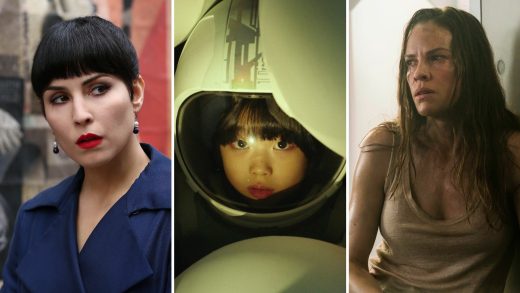In the United States, more than 440,000 children are in foster care. Every year, approximately 20,000 of those youth age out of care, without any positive familial support or connections. To help them, a network of families and professionals work tirelessly to create a support system where one doesn’t exist. One of these people is a former foster parent, Joelle Keane Tramel, who leads a team at YouTube based in our New York City office.
She’s an advocate for foster children seeking permanent homes—and has two adopted daughters of her own. This May, which is National Foster Care Month, I talked to Joelle for our latest She Word to learn about her family’s story, plus how she balances a full family life while leading a team in a fast-paced work environment.
How do you explain your job at a dinner party?
I’m on a global team for YouTube that’s focused on making sure our engineers build advertising solutions that help marketers achieve their business objectives. We then help our sales team communicate the benefits of those solutions to advertisers.
How do you approach managing a team?
I believe in building a team where vulnerability, accountability and trust are rewarded. I’ve succeeded on teams that have psychological safety, clear roles and responsibilities, and where each person’s work has an impact.
You’re busy at work, but you also have a busy family life—raising three children, two of whom you’ve adopted.
Growing up, I always wished to do something bigger than myself and wanted to adopt. My husband and I opened our home to foster kids, in order to help local families rebuild following traumatic situations that often land children in the system. We wanted to provide permanency in kids’ lives—no matter the outcome of reunification or adoption.
Fostering was an option for me because I work at Google, which allowed the flexibility I needed to be a present parent. After the state department said we’d never be placed with multiple children or adopt our first foster children, two years later we adopted our first placement of two biological pre-teen sisters and became a forever family.
What was the adoption process like?
I’d been licensed for one week when we got the call for my daughters, who were eight and nine years old at the time. We had a revolving door of resources for the kids, including a law guardian, nurse, caseworker, court appointed special advocate and family visits a few hours a week. When those family visits didn’t go well, we needed to be home to support the kids afterwards.
The family leave time, flexibility to work remotely, and the support I received from my managers and teammates was critical during this time. I used Google’s family leave time throughout the foster care process and following the adoption, which was so important for our bonding as a new family. All of this happened around the same time that I had a biological child.
Outside of Google, you’re involved with You Gotta Believe, a nonprofit that focuses on finding permanent families for young adults, teens and pre-teens in foster care.
My colleague and good friend introduced me to You Gotta Believe, the only NYC Metro organization that exclusively focuses on finding permanent families for young adults, teens and pre-teens in foster care. When I met the people who run the organization, I couldn’t get through my introduction without crying. This was a group of people who understood the unique needs of adopting older children—I would’ve loved to have been connected to them when I was adopting!
I’ve been a member of their board for over a year now. I’m honored to support an organization that’s changing the lives of one of the most vulnerable populations in our society.
What advice would you give to any prospective parent who’s thinking about adoption?
If you’ve thought about fostering or adoption, follow your instinct. There’s no linear way to be a foster or adoptive parent, but if you have patience, love, empathy and courage you’ll find your way. I was never as clear about my purpose in life until I adopted and became a mom.
Every human being is deserving of a family.
What’s one habit that makes you successful?
Every morning, I set intentions for the day in my gratitude journal. It’s centering to focus on what matters to me and my wellness. My intention may be walking my youngest to school, connecting with someone important in my life or launching a project at work. I strive to be a role model for my team and family in showing that wellness and balance come when you create it.
Who has been a strong female influence in your life?
My Gram. She was my biggest cheerleader who showed me how to live with grace and integrity. She also taught me that chocolate is a food group. And of course, my children. My oldest daughter has taught me about resilience and perspective, my middle daughter has taught me about having a vision and designing a life that matters, and my youngest daughter taught me about unconditional love as the glue to our “build-a-family.”
Source : How foster care advocacy led a Googler to her family











